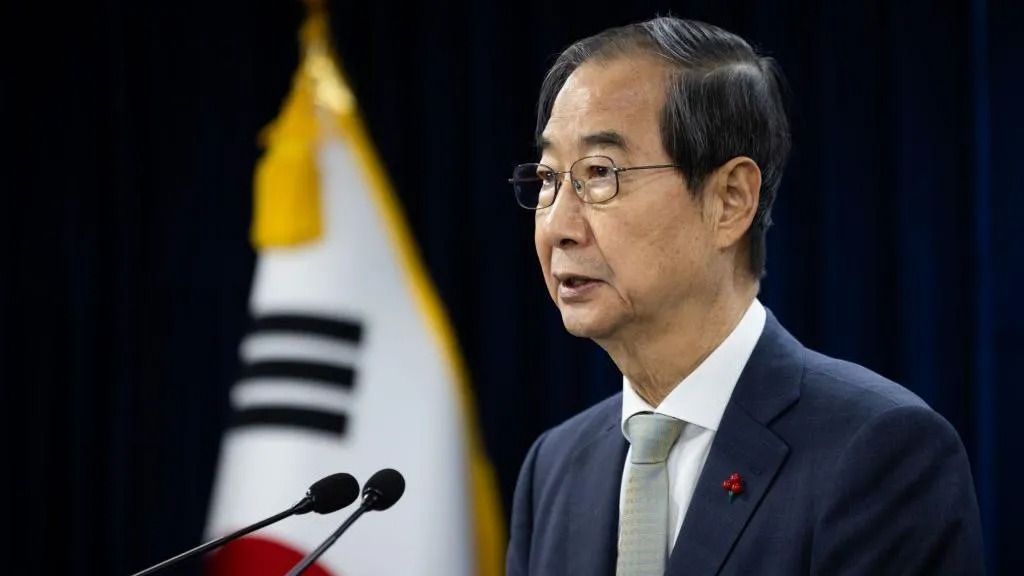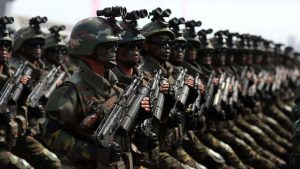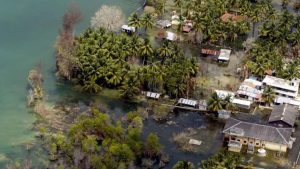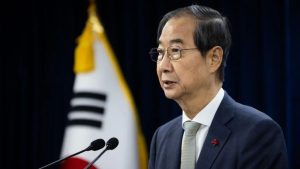
South Korea’s political crisis deepened on Friday as lawmakers voted to impeach acting president Han Duck-soo. This historic decision comes just two weeks after parliament impeached President Yoon Suk Yeol, further plunging the nation into turmoil.
A total of 192 lawmakers supported the motion to impeach Han, exceeding the 151 votes required for passage. Han had assumed presidential duties following Yoon’s impeachment, but opposition MPs accused him of obstructing efforts to finalize Yoon’s removal.
Dramatic Scenes in Parliament
The impeachment vote was marked by chaos in the National Assembly. Lawmakers from the ruling People Power Party (PPP) protested the vote, accusing Assembly Speaker Woo Won-shik of abusing power. Unlike Yoon’s impeachment, which required 200 votes, Han’s removal needed only a simple majority of 151. This allowed the opposition to proceed without ruling party support.
As the results were announced, PPP members chanted “invalid!” and “abuse of power!” before boycotting the vote. Despite their protests, the impeachment motion passed, and Han will be suspended from his duties once officially notified by parliament.
Opposition’s Motive for Impeachment
The opposition filed the impeachment motion after Han blocked the appointment of three judges nominated to oversee Yoon’s impeachment case. Currently, South Korea’s Constitutional Court has only six active judges. For Yoon’s impeachment to be upheld, at least six of nine judges must agree. The lack of a full bench complicates the odds for Yoon’s removal, sparking opposition outrage.
Han’s impeachment will also require confirmation from the Constitutional Court, which has 180 days to decide. Finance Minister Choi Sang-mok is set to assume acting presidential duties in the interim.
Historical and Economic Implications
This marks the first time in South Korean history that an acting president has been impeached. The political fallout from these events has created a legislative gridlock and economic instability. On Friday, the Korean won plunged to its lowest level against the US dollar since the 2008 global financial crisis, with both ruling and opposition parties blaming each other for the chaos.
Fallout from Martial Law Declaration
South Korea’s current political crisis stems from President Yoon’s controversial attempt to impose martial law on December 3. He cited threats from “anti-state” forces as justification, but parliament swiftly overturned the declaration. Yoon later apologized, claiming he sought to protect democracy.
The fallout has led to the arrests of several top officials on charges of insurrection. Meanwhile, Yoon is under investigation and faces an impeachment trial. He has defied summons from authorities and is barred from leaving the country.
Conclusion
The impeachment of Han Duck-soo intensifies South Korea’s political uncertainty. With both Yoon and Han awaiting Constitutional Court rulings, the nation faces an unprecedented leadership crisis that could have long-lasting effects on its governance and economy.
External Link
Learn more from BBC
Internal Link
Related analysis on Eurasia Sports






